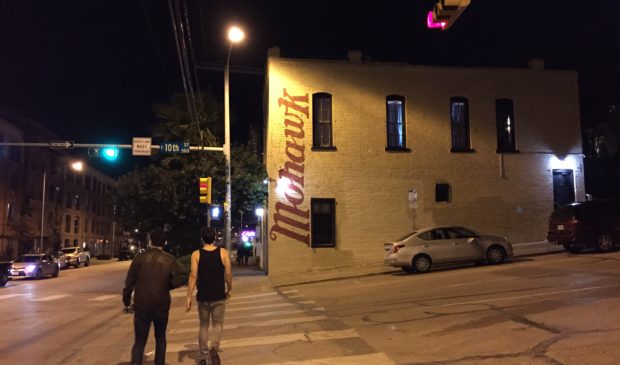Red River Cultural District seeks new director to succeed Cowan
Tuesday, July 26, 2022 by
Chad Swiatecki The Red River Cultural District is searching for a new executive director to lead the nonprofit organization that seeks to stabilize and improve the city’s most prominent cluster of live music venues. The search comes on the heels of the announcement that Cody Cowan, who has served as executive director since shortly after the group’s formation in 2015, has taken a job as chief operating officer of the National Independent Venue Association.
RRCD leaders have named Nicole Klepadlo as interim executive director. She previously served as redevelopment project manager for the city’s Economic Development Department, where she helped oversee the Souly Austin program that organized merchant associations in neighborhoods and districts around the city. The search for a permanent executive director is expected to be completed this fall.
Since taking over leadership of the district and advocating for its interests at City Hall, Cowan played a large role in extending weekend noise curfews for outdoor music venues in the area to bring in more drink sales revenue. He assisted in the effort to secure a portion of the city’s share of Hotel Occupancy Tax revenue for live music, which led to the creation of the long-in-the-works $3 million Live Music Fund. The city is moving ahead with improving sidewalks, lighting and wayfinding in the district, and an alleyway that had been a hot spot for drug use and public safety concerns was closed to general access in recent years.
The RRCD was created in part because of concerns that rising land process and development pressures were endangering some of the city’s most respected music venues, which are increasingly being surrounded by high-dollar hotels and residential towers downtown. The group gets some of its funding and organizational support from Austin-based real estate magnate Gary Keller, who pushed it and other groups involved in music advocacy to work together.
Cowan said there are still significant issues facing small clubs and music venues in the aftermath of the Covid-19 pandemic.
“The challenges are the same that are faced by independent venues in the sphere of music and comedy, which is that the ‘we’re back’ moment is over and tours and fests are still falling apart,” he said. “Music venues and comedy clubs are entering a new phase, and have to figure out the new playbook.”
While Cowan was thankful for the cooperation he found with other local stakeholders in pursuing policy goals like the Live Music Fund, he said the city’s slow pace of adapting to change and new ideas presents a persistent problem for advocates of any interest group.
“Our biggest enemy is time and figuring out solutions for these challenges while having to partner with existing organizations and entrenched bureaucracies in the city … and doing anything turns out to be a five- to 10-year project. That doesn’t work and I know it is similar in many other markets, but it is particularly difficult here where the city processes move at a glacial pace. That’s not good and isn’t helping us to retain what’s authentic about Austin when it comes to small businesses, artists and performers.”
James Moody, co-owner of the Mohawk concert venue where Cowan worked as general manager prior to leading the RRCD, said the organization needs to continue to play an active role in lobbying for musicians and related businesses. That will mean building on Cowan’s gift for public speaking and advocacy and adding more business industry development experience to develop a more diverse live music industry.
“Whatever happens next, we have to take advantage of the information we have, look at what worked and what didn’t, and then amplify what was working because clearly this was a smart investment,” he said. “Whoever comes in next should take Cody’s football and advance it by being an evangelist but also being like a CEO and business manager who looks at how we can grow what has been established. The next person needs to be that hybrid lobbyist and preacher for the community while also having experience in business innovation and fundraising.”
Photo made available through a Creative Commons license.
The Austin Monitor’s work is made possible by donations from the community. Though our reporting covers donors from time to time, we are careful to keep business and editorial efforts separate while maintaining transparency. A complete list of donors is available here, and our code of ethics is explained here.
You're a community leader
And we’re honored you look to us for serious, in-depth news. You know a strong community needs local and dedicated watchdog reporting. We’re here for you and that won’t change. Now will you take the powerful next step and support our nonprofit news organization?








